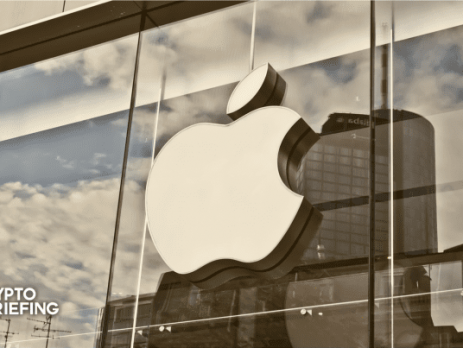Apple’s New NFT Policy Sparks Controversy
[ad_1]
Key Takeaways
- Apple has updated its App Store policy to allow certain apps featuring non-fungible tokens (NFTs).
- The policy only permits NFTs without in-app functionality and disallows redirection to external services.
- The updated policy has received mixed reactions from the tech and cryptocurrency community.
Share this article
Recent changes to Apple’s NFT policy have sown division within the crypto and tech communities.
Apple Updates NFT Policy
Apple’s NFT policy is generating controversy.
On October 24, Apple updated its App Store guidelines to change its policy around non-fungible tokens or NFTs.
The new policy explicitly allows app developers “to sell [non-fungible tokens] and sell services related to [NFTs].” This means that apps can allow the “minting, listing, and transferring” of NFTs in-app.
An enormous caveat, however, is that the policy does not permit the sale of “utility” NFTs. App developers cannot allow users to unlock in-app functions or features with NFTs, nor can they redirect users to external buying mechanisms.
These limitations will likely be detrimental to blockchain-based games that use NFTs. However, it is not apparent that such apps have a large presence in the first place, as querying its app store only returns nine NFT apps.
Apple initially began to support NFTs in late September, when it was criticized for relying on its own payment mechanism. This approach means that Apple adds a 30% tax on NFT sales in high-revenue apps—a policy that also applies to other apps with transactions.
Reactions Have Been Mixed
Reaction to the new policy has been mixed. Apple’s policy has been acknowledged positively by some, with headlines from Forbes and Game Developer highlighting the fact that the new store policy explicitly accommodates NFTs.
Others have criticized Apple for the restrictive nature of its policy and its seemingly excessive 30% cut.
Tim Sweeney, CEO of Epic Games, has criticized both sides by arguing that Apple is neither for nor against NFTs but rather is motivated solely by money. “They support NFTs they tax, and ban NFTs they don’t tax,” Sweeney observed.
Some have noted that Apple’s restrictive NFT policy is not entirely unique. Bryan Ross, a staff software engineer at Docker, noted the absurdity of Apple introducing “the same in-app purchase rules that other apps have to, and watching the whole [tech] sphere melt down in response.”
Yat Siu, a co-founder of the blockchain-focused gaming company Animoca Brands, suggested that Apple’s restrictions are only possible because of its current dominance. He argued that the economic opportunity of blockchain gaming will become “so weighty, like an open market,” that Apple will “eventually capitulate.”
Today’s news comes alongside an FCA discussion concerning Big Tech and its impact on retail finance. Those discussions aim to create a pro-competitive approach in those markets.
Though not specifically related to Apple’s NFT policy, the discussion could lead to future regulatory changes, thereby impacting Apple’s policies around NFTs and payments.
Disclosure: At the time of writing, the author of this piece owned BTC, ETH, and other digital assets.
Share this article
[ad_2]
Source link












Leave a Reply